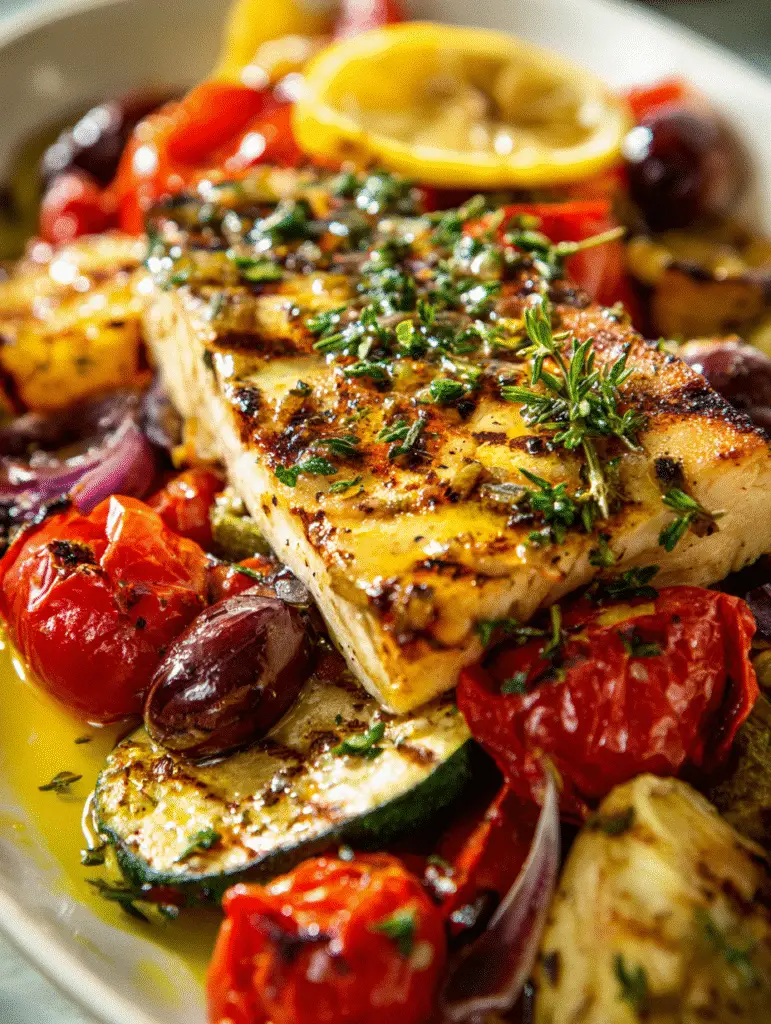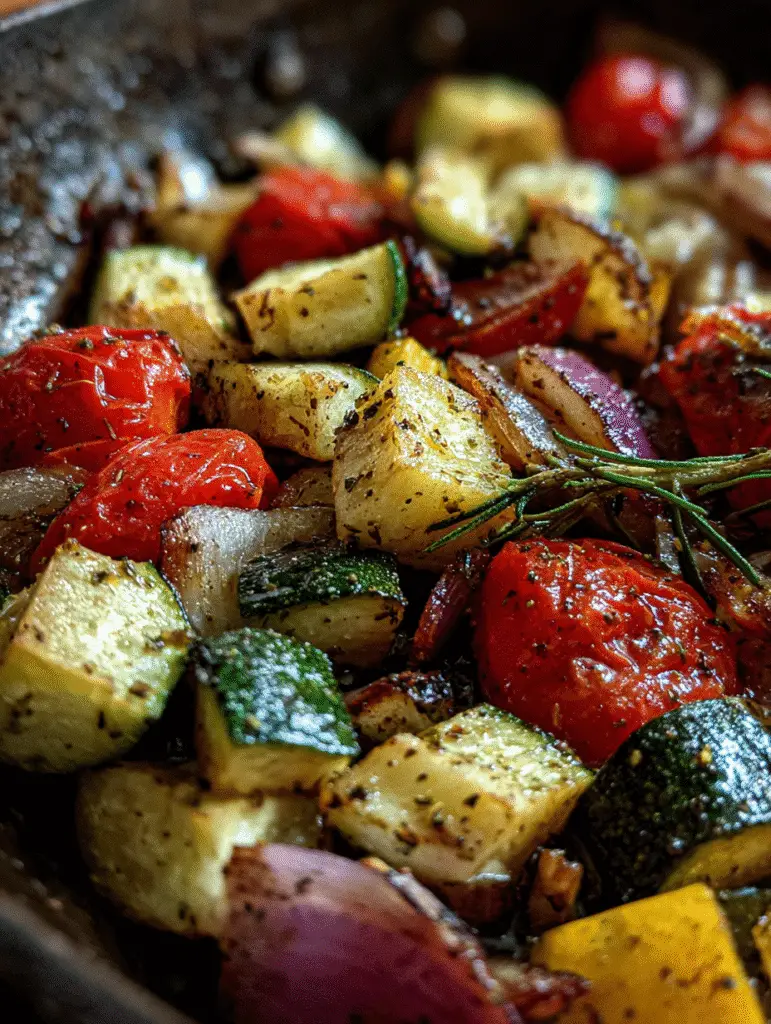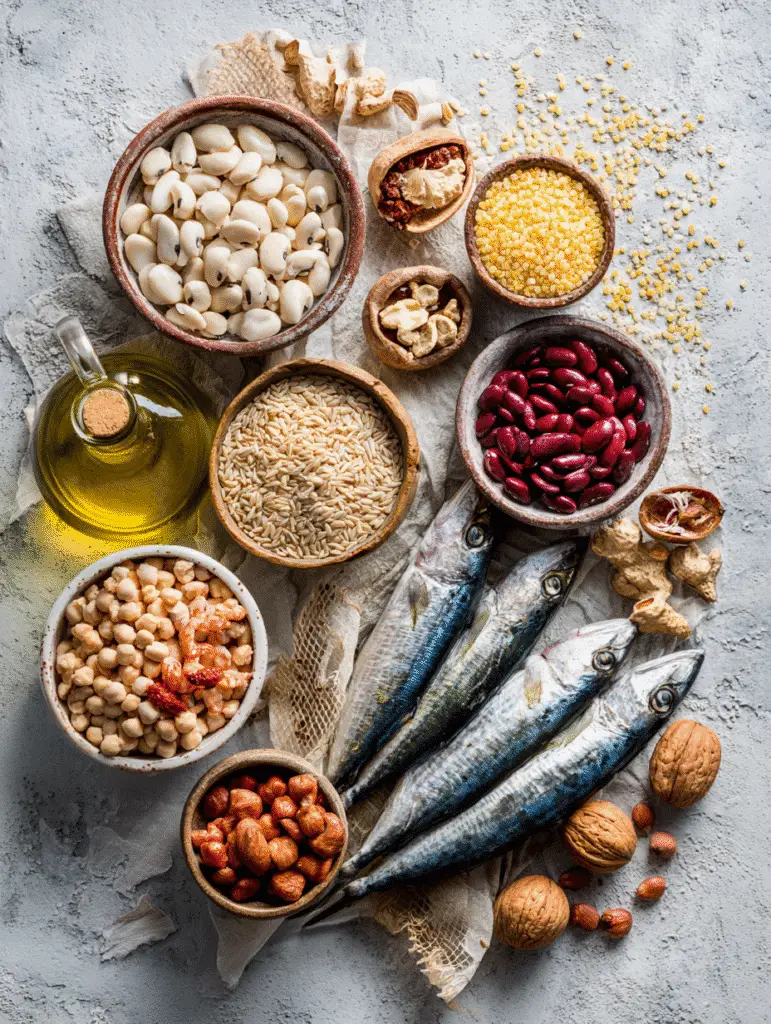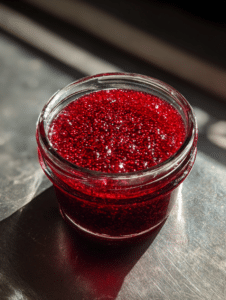Disclaimer: This content is for educational purposes only, not medical advice. Always consult with a doctor before making significant changes to your diet, especially if you have pre-existing health conditions.

The Mediterranean diet is more than a trend. It’s a way of eating rooted in the kitchens of Greece, Italy, and Spain, where food connects families and health is celebrated naturally. I first stumbled into this style of eating after a summer trip to Crete, and what struck me most wasn’t just the olive oil or fresh vegetables, it was how simple and joyful meals felt. In this guide, we’ll walk through what the Mediterranean diet is, why it’s healthy, the foods to eat (and avoid), and how to make recipes and meal plans fit right into daily life.
In this Article
Key Takeaways: What You Need to Know
- The Mediterranean diet is a plant-forward, whole-food way of eating inspired by traditional Mediterranean regions.
- It emphasizes vegetables, fruits, whole grains, legumes, nuts, fish, and olive oil.
- Red meat, processed foods, and refined sugars are limited.
- Research links it to heart health, weight management, and longer life.
- Recipes and meal plans are easy, flexible, and delicious for families.
What is the Mediterranean Diet?
How do we define the Mediterranean diet?
The Mediterranean diet is a pattern of eating based on the traditional cuisines of countries along the Mediterranean Sea. Unlike strict “rules,” it’s a lifestyle that favors fresh vegetables, beans, seafood, nuts, seeds, whole grains, and plenty of olive oil. Meals are often built around seasonal produce, herbs, and shared tables. What makes it stand out is balance: it’s flexible enough to fit different tastes while staying grounded in wholesome foods.
Why does the Mediterranean diet matter today?
The diet has become a go-to recommendation from doctors and nutritionists because studies show it lowers risks of heart disease, diabetes, and certain cancers. But beyond health, it’s approachable. You don’t need to count calories or track macros. Instead, you lean on simple meals like lentil soup, grilled fish, or a vibrant tomato-cucumber salad. That’s why many people find it sustainable compared to restrictive diets.
If you’re just starting out, my full breakdown of what is the Mediterranean diet will give you an even deeper dive into its origins and health benefits.
Is the Mediterranean Diet a Healthy Diet?
What makes the Mediterranean diet so healthy?
Yes, the Mediterranean diet is widely considered one of the healthiest diets in the world. It consistently ranks at the top of medical and nutrition reviews because it lowers the risk of heart disease, stroke, and type 2 diabetes. The secret lies in balance: whole grains and legumes provide fiber, fish adds omega-3 fatty acids, and olive oil supports healthy cholesterol levels. It’s not about eating less, it’s about eating smarter.
How do studies back up the Mediterranean diet?
Research from Harvard and the Mayo Clinic confirms that people following the Mediterranean diet live longer and have fewer chronic diseases compared to those on standard Western diets. For example, one long-term study showed that women who followed this diet had a 25% lower risk of heart disease. Scientists point to the variety of antioxidants from vegetables, fruits, and herbs that protect cells against inflammation.
Personal story touch:
When I started cooking Mediterranean meals for my family, I noticed we naturally ate more vegetables without even trying. A simple chickpea salad with lemon and parsley became a staple at our dinner table, and honestly, no one missed the heavy casseroles we used to rely on during busy weeks.
If you’re curious about practical ways to try it, I’ve put together a Mediterranean diet meal plan that makes it easy to get started, even if you’re brand new.
Are Mediterranean Diet Recipes Easy?
Can beginners cook Mediterranean meals without stress?
Absolutely. Mediterranean diet recipes are famously simple, built on pantry basics and fresh produce. Think roasted vegetables with olive oil, grilled salmon with lemon, or lentils simmered with garlic and tomatoes. Most meals use fewer than 10 ingredients, and many can be prepared in under 30 minutes.
What makes Mediterranean cooking flexible?
The beauty of Mediterranean food is flexibility. Don’t have chickpeas? Swap in white beans. No fresh herbs? Use dried oregano or thyme. The recipes are forgiving, and they rely more on good ingredients than complicated cooking methods. That’s why this diet works so well for families, students, or anyone with a busy schedule.
Personal kitchen note:
One of my first Mediterranean dinners was a simple pan of roasted zucchini, bell peppers, and onions. I added feta cheese and served it with crusty bread. It felt gourmet but took less effort than ordering takeout.
If you’d like a starting point, my collection of Mediterranean diet recipes includes over 50 dishes, everything from quick weekday dinners to light breakfasts.

What Foods Should You Eat on a Mediterranean Diet?
What does the Mediterranean diet consist of?
The Mediterranean diet centers around whole, minimally processed foods. Fresh vegetables, fruits, beans, lentils, nuts, olive oil, and seafood make up the core. Dairy is eaten in moderation, think plain yogurt and cheese like feta. Poultry and eggs appear occasionally, while red meat and sweets are reserved for special moments.
What foods are not allowed on the Mediterranean diet?
The diet discourages heavily processed foods. That means fast food, refined grains like white bread, sugary sodas, and packaged snacks aren’t part of the plan. Processed meats, such as hot dogs and deli meats, are also avoided because of their high salt and preservative content. Instead, the diet encourages cooking at home with simple, fresh ingredients.
Mediterranean Diet Food List
Here’s a clear breakdown of what to enjoy often, sometimes, and rarely:
| Eat Often | Eat in Moderation | Eat Rarely |
|---|---|---|
| Vegetables (tomatoes, zucchini, spinach, peppers) | Poultry (chicken, turkey) | Red meat (beef, lamb, pork) |
| Fruits (oranges, grapes, figs, apples) | Dairy (yogurt, feta, Parmesan) | Processed meats (sausages, hot dogs) |
| Whole grains (oats, quinoa, barley, brown rice) | Eggs | Refined grains (white bread, pastries) |
| Legumes (chickpeas, lentils, beans) | Wine (red, in moderation) | Sugary drinks and sodas |
| Seafood (salmon, sardines, mackerel) | Potatoes (boiled, roasted) | Highly processed snacks and sweets |
| Olive oil, nuts, seeds | Cheese (small portions) | Fast food items |
Real-Life Testimonial
“Switching to the Mediterranean diet changed the way I feel every day. As a mom of three, I used to rely on packaged snacks and quick dinners. When I started cooking more beans, fish, and vegetables, I felt lighter, more energetic, and my kids even started asking for roasted chickpeas as snacks. It didn’t feel like a diet, it felt like living better.” – Rachel M., Austin, TX
For a full printable version, check my Mediterranean diet food list. You’ll find an even more complete list of foods to keep in your pantry.
Mediterranean Diet Recipes and Meal Plans
Are Mediterranean diet recipes beginner-friendly?
Yes, Mediterranean diet recipes are easy to make, even if you’re new to cooking. They often use pantry staples like olive oil, canned beans, tomatoes, and herbs. Instead of fancy techniques, the focus is on layering fresh flavors, roasting vegetables, drizzling olive oil, or squeezing lemon over grilled fish. That’s why many beginners find success with Mediterranean meals in their first week.
What does a Mediterranean diet meal plan look like?
A typical Mediterranean meal plan balances vegetables, whole grains, legumes, seafood, and healthy fats across the day. Breakfasts might feature yogurt with fruit and nuts, lunches often include bean-based salads or grain bowls, and dinners spotlight seafood with vegetables. Snacks usually come from nature, fresh fruit, olives, or roasted chickpeas.
3-Day Mediterranean Diet Meal Plan
Here’s a quick sample plan you can follow:
| Day | Breakfast | Lunch | Dinner | Snack |
|---|---|---|---|---|
| Day 1 | Greek yogurt with honey, walnuts, and berries | Chickpea salad with cucumbers, tomatoes, and feta | Grilled salmon with roasted zucchini and quinoa | Olives and roasted almonds |
| Day 2 | Whole grain toast with avocado and sliced tomato | Lentil soup with a side of whole grain bread | Baked chicken with lemon, garlic, and roasted carrots | Fresh apple slices with almond butter |
| Day 3 | Oats with figs, chia seeds, and a drizzle of olive oil | Tuna salad with mixed greens, olives, and farro | Shrimp sautéed with garlic, olive oil, and spinach over brown rice | Roasted chickpeas with sea salt |
Personal kitchen note:
When I first tested this 3-day plan, my favorite surprise was breakfast oats drizzled with olive oil, it felt indulgent but kept me full until lunch. That’s when I realized Mediterranean cooking makes “healthy” feel deliciously doable.
If you’d like to dive deeper, I’ve put together a complete Mediterranean diet meal plan with more variations. For flavor boosters, try my Pink Salt Trick Recipe or the Natural Mounjaro Recipe, both designed to fit seamlessly into this way of eating.
Mediterranean Diet Pros and Cons
What are the benefits of the Mediterranean diet?
The Mediterranean diet is praised because it promotes heart health, lowers inflammation, and supports weight management. It’s linked to reduced risk of type 2 diabetes and certain cancers. People also find it sustainable because it’s not overly restrictive, you can still enjoy bread, cheese, and wine in moderation.
Are there any risks to the Mediterranean diet?
While overwhelmingly safe, the diet may not suit everyone. Those who need to monitor carbohydrate intake (such as people with diabetes) should plan carefully, since whole grains and legumes are staples. Also, olive oil and nuts are calorie-dense, so portion awareness matters if weight loss is the goal.
Mediterranean Diet Pros and Cons
| Pros | Cons |
|---|---|
| Improves heart health (lower LDL cholesterol) | High calorie density from oils and nuts |
| Reduces risk of type 2 diabetes | Carb intake may be too high for some |
| Supports long-term weight management | Seafood can be costly depending on location |
| Encourages whole, unprocessed foods | Requires more home cooking and prep |
| Flexible, enjoyable, and family-friendly | Limited red meat may feel restrictive for some |
Expert Backing
- According to the National Institutes of Health (NIH), the Mediterranean diet lowers cardiovascular disease risk and increases longevity (NIH.gov).
- Harvard School of Public Health confirms its protective effect against heart disease, stroke, and certain cancers (Harvard.edu).
Personal kitchen reflection:
The biggest “pro” for me? I never felt deprived. A drizzle of olive oil on vegetables felt satisfying, and sharing fresh bread with my kids became a comfort ritual. The “con”? Seafood prices here in Austin can pinch the budget, but swapping in beans kept meals affordable and filling.
For a closer look at everyday cooking, my Mediterranean diet recipes are budget-friendly and kid-approved.

Mediterranean Diet for Beginners – Recipes, Risks, and Lifestyle Tips
How can beginners start the Mediterranean diet?
Starting the Mediterranean diet is simple. Begin by swapping butter for olive oil, red meat for fish or beans, and processed snacks for fruit and nuts. You don’t have to change everything at once, start with one meal per day and gradually build habits that stick.
What are easy Mediterranean diet breakfast ideas?
Breakfast can be quick and delicious. Try Greek yogurt topped with walnuts and honey, whole grain toast with avocado and tomato, or oats with figs and a drizzle of olive oil. These meals deliver fiber, protein, and healthy fats that keep you full until lunch.
Mediterranean Diet Recipes for Beginners
If you’re just getting started, keep recipes short and forgiving. Some favorites include:
- Chickpea and cucumber salad with lemon
- Roasted zucchini and tomatoes with feta
- One-pan baked salmon with garlic and spinach
These beginner recipes require only a few steps but capture the flavor of the Mediterranean table.
Check out my roundup of Mediterranean diet recipes for even more inspiration, especially if you want recipes designed for beginners.
A Mediterranean Lifestyle Beyond the Plate
When I think back to my time in Crete, what stood out wasn’t only the food, it was the rhythm of daily life. Meals weren’t rushed. People gathered around long tables, sometimes outdoors, with neighbors and family drifting in and out. Children played nearby while grandparents poured small glasses of wine. The focus wasn’t on nutrition charts or calorie counting. It was about connection, laughter, and savoring simple pleasures.
Cooking was treated the same way. No one worried if the zucchini was cut evenly or if the bread was perfectly baked. What mattered was that it was fresh, local, and shared. Even the smallest garden produced herbs like oregano, mint, and rosemary, which found their way into nearly every dish. These herbs didn’t just flavor food, they told a story of seasons, soil, and tradition.
I remember watching a neighbor drizzle golden oil over a plate of roasted eggplant. He said, “This is how we eat because it’s how we live.” That sentence has stayed with me for years. It reminded me that good food is less about strict rules and more about creating moments worth remembering.
Back at home in Texas, I tried to bring this approach into my kitchen. I started setting the table, even on busy weeknights, instead of eating standing by the counter. I lit a candle during dinner, served meals in big bowls, and encouraged my kids to share what they enjoyed most about their day. Suddenly, dinner felt less like a task and more like a pause button on the chaos of daily life.
For me, this way of living isn’t about perfection, it’s about slowing down and appreciating the gift of a meal, however simple.
FAQs:
What is the Mediterranean diet?
The Mediterranean diet is a way of eating inspired by countries along the Mediterranean Sea. It emphasizes vegetables, fruits, legumes, whole grains, olive oil, fish, and nuts, while limiting red meat, processed foods, and sweets.
Is the Mediterranean diet a healthy diet?
Yes. Studies link the Mediterranean diet to reduced risk of heart disease, stroke, diabetes, and certain cancers. Its focus on whole foods, healthy fats, and fiber makes it one of the most recommended diets worldwide.
Are Mediterranean diet recipes easy?
Yes, most recipes are simple. Meals often use fewer than 10 ingredients, and many can be prepared in 30 minutes or less. Fresh produce, beans, fish, and olive oil form the backbone of easy Mediterranean meals.
What foods should you eat on a Mediterranean diet?
Eat vegetables, fruits, beans, lentils, nuts, seeds, whole grains, fish, seafood, and olive oil regularly. Enjoy dairy and poultry in moderation, and limit red meat, processed foods, and sugary snacks.
What does the Mediterranean diet consist of?
It consists of plant-based foods, lean proteins like fish and poultry, and healthy fats such as olive oil. Meals often include fresh herbs, whole grains, and occasional red wine with food.
What foods are not allowed on the Mediterranean diet?
Avoid heavily processed foods, refined grains like white bread, sugary drinks, sweets, and processed meats such as sausages or hot dogs. Fast food is also not considered part of the Mediterranean lifestyle.
Conclusion
The Mediterranean diet isn’t just about food, it’s about living with balance, flavor, and connection. With its focus on fresh vegetables, whole grains, and heart-healthy fats, it’s one of the easiest and most rewarding ways to eat well every day. Whether you’re making a chickpea salad, trying a 3-day meal plan, or exploring breakfast ideas, you’ll discover that healthy eating doesn’t need to be restrictive. It can be joyful, flavorful, and sustainable for life.



